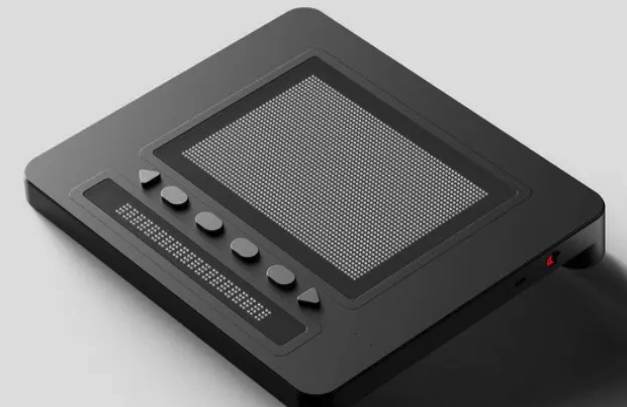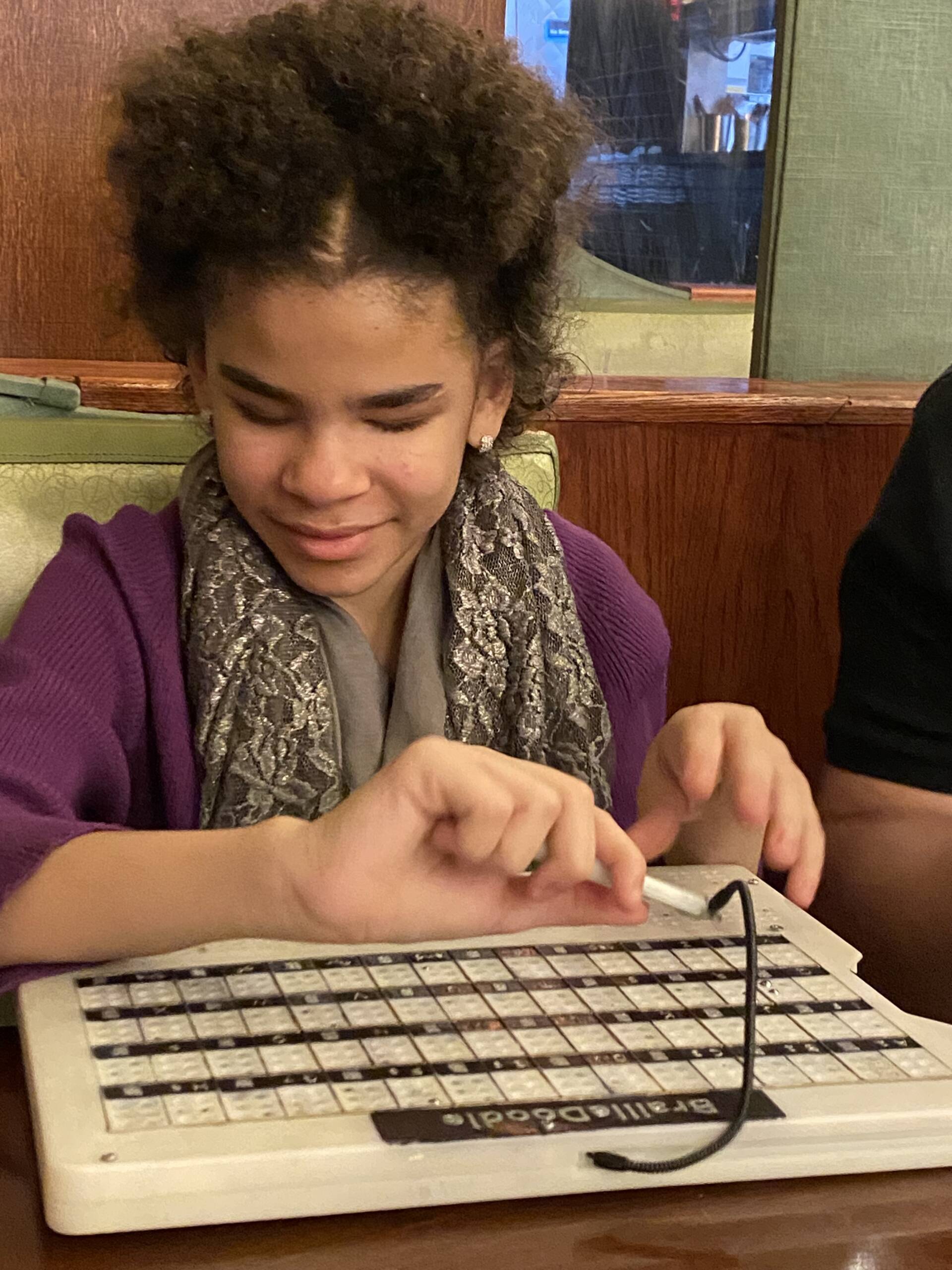Screen Readers for the Blind: Accessing Data Without Barriers
Wiki Article
Empowering Freedom With Assistive Technology for the Blind
The integration of assistive modern technology into the lives of people with visual problems represents a substantial development in promoting independence and self-sufficiency. From ingenious display visitors to sophisticated smart canes, these devices not only enhance day-to-day navigation and interaction yet additionally empower customers to involve meaningfully in various aspects of life. As we explore the myriad advantages and real-world applications of these technologies, it comes to be crucial to analyze the underlying variables that add to their effectiveness and the capacity for future growths in this crucial area.Overview of Assistive Modern Technology

The advancement of assistive technology is grounded in principles of inclusivity and empowerment. Technologies in software, equipment, and sensory enhancements provide customers with alternatives customized to their certain requirements. From screen visitors that transform message to speech, to responsive gadgets that share info through touch, these devices transform the way people involve with their environments.
In enhancement to functional applications, assistive modern technology cultivates higher social addition and engagement in various fields, consisting of education and learning and employment (Smart glasses for the visually impaired). As r & d remain to progress, the potential for assistive innovation to additionally enhance the lives of aesthetically impaired individuals continues to be appealing, leading the way for an extra equitable culture where every person can grow
Sorts Of Assistive Devices
A variety of assistive gadgets have actually arised to sustain people with visual problems, each made to satisfy particular needs and enhance everyday functioning. These devices range from low-tech remedies to high-tech innovations, providing diverse options for users.Low-tech gadgets consist of magnifiers and large-print materials that aid in reading and writing. Braille tools, such as Braille slates and styluses, enable tactile analysis and communication. Orientation and movement help, like white walking canes, assist customers navigate their atmosphere securely.
On the higher end of the range, electronic magnifying systems and display viewers use substantial assistance. Electronic magnifiers permit customers to increase the size of message and images on screens, while screen visitors convert digital material right into manufactured speech, facilitating accessibility to details on computers and smart devices.
Smartphone applications likewise play a vital duty, providing features like text recognition and navigating help. Wearable innovation, such as clever glasses outfitted with enhanced truth, is arising as an appealing tool to enhance situational understanding.
Advantages of Assistive Innovation
The integration of assistive modern technology significantly improves the high quality of life for individuals with aesthetic disabilities. These modern technologies equip individuals by advertising independence, allowing them to browse their atmospheres a lot more efficiently and execute everyday tasks with higher convenience. For example, screen visitors and magnifying software program permit individuals to gain access to electronic details, cultivating expert and academic opportunities that might have formerly been out of reach.In addition, assistive gadgets such as wise walking canes and general practitioners applications give real-time navigating assistance, enhancing wheelchair and safety. This enhanced autonomy not only improves self-worth yet likewise motivates social engagement, permitting individuals to take part more totally in their communities.
Assistive innovation additionally assists in interaction, aiding users get in touch with others with voice recognition and text-to-speech applications. This capability is essential for maintaining relationships and accessing essential details.
Additionally, the customization alternatives available with numerous assistive technologies guarantee that users can customize devices to their specific needs, better enhancing usability and performance. In general, the benefits of assistive technology for individuals with visual impairments are profound, promoting a more inclusive society where every person can pursue their ambitions and goals.
Study and Success Stories
Highlighting the transformative impact of assistive innovation, countless study highlight how individuals with aesthetic problems have efficiently integrated these tools into their day-to-days live. One compelling example includes an university student who used screen analysis software to navigate on the internet resources and academic materials properly. This innovation not Screen readers for the blind only promoted her education but likewise boosted her self-confidence in joining discussions and group jobs.One more study includes a specialist that uses a smartphone application designed for navigation and object recognition. By utilizing this app, he has actually reclaimed autonomy in both his individual and work environments, allowing him to commute separately and involve with coworkers better.
Additionally, a retiree shared her experience with braille e-readers, which enabled her to access a substantial array of literature and remain gotten in touch with her area with publication clubs.
These success tales underscore the important role of assistive modern technology in fostering freedom, improving lifestyle, and advertising social combination for people with aesthetic impairments (OCR devices for the blind). By embracing these innovative tools, individuals can get rid of obstacles and confiscate possibilities that add to their individual and professional fulfillment

Future Fads in Assistive Technology
Advancement in assistive technology is poised to redefine the landscape of assistance for individuals with visual problems. Arising patterns highlight the assimilation of expert system (AI) and artificial intelligence, which improve the capability of devices that help with navigating and details ease of access. AI-driven applications are currently capable of analyzing visual data in real-time, allowing customers to involve with their setting much more individually.Moreover, the growth of wearable technology is advancing quickly. Smart glasses furnished with enhanced fact (AR) can provide audio descriptions of environments, changing exactly how users interact with public rooms. These gadgets not only advertise freedom however also foster social inclusion.
In Addition, the Web of Things (IoT) is making homes smarter, permitting smooth connectivity in between day-to-day home appliances and assistive devices. This connection empowers customers by allowing voice-activated controls and automatic responses customized to private needs.
Verdict
In final thought, assistive technology plays a critical role in encouraging individuals with aesthetic disabilities by enhancing their freedom and interaction with their surroundings. The varied variety of tools and applications readily available not only promotes navigating and communication however also promotes social assimilation and chances for expert and individual growth. As advancements continue in this area, the possibility for improving the top quality of life for those with visual disabilities will broaden, cultivating higher freedom and empowerment.
Report this wiki page